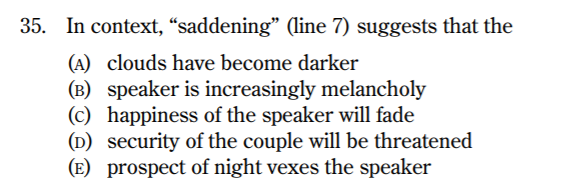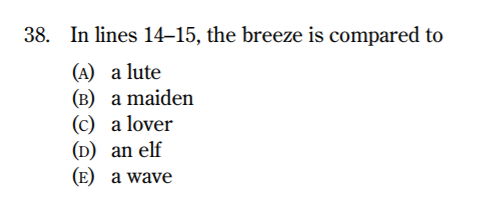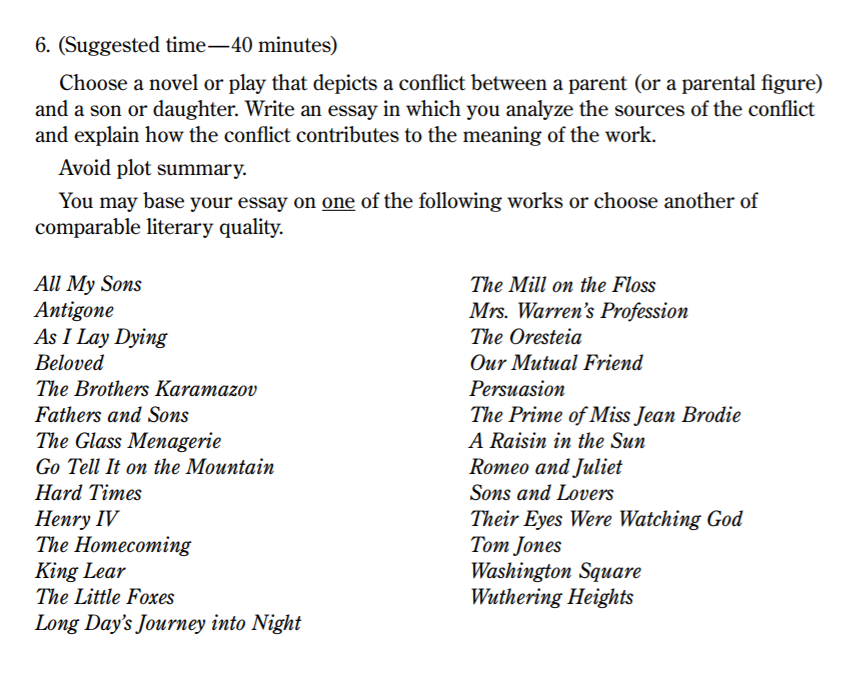Ultimate Guide to the AP English Literature and Composition Exam
The English Literature and Composition exam is one of the most popular AP exams among self-studiers and enrolled students alike. In 2019, a total of 380,136 students took the AP Literature exam, making it the third most favored AP exam, trailing only English Language and U.S. History in popularity. If you are interested in taking the AP Literature exam—and are taking a class or self-studying—read on for a breakdown of the test and CollegeVine’s advice for how to best prepare for it. 2020’s AP English Literature and Composition exam day is Wednesday, May 6, 2020 at 8 AM. Check out our blog 2020 AP Exam Schedule: Everything You Need to Know to learn more about this year’s AP exam dates and times. The AP Literature course engages students in careful reading and critical analysis of fictional literature, leading to a deeper understanding of the ways in which writers provide both meaning and pleasure to their readers—considering structure, style, theme, and smaller-scale elements such as figurative language, imagery, symbolism, and tone. Although there is no required reading list, the College Board formerly provided a list of prospective authors in its past AP Literature course description. Regardless of which specific titles are read in preparation for the exam, students should be familiar with works from both British and American authors written from the 16th century to the present. Ten of the commonly studied works in AP Literature courses are: The AP Literature exam is one of the longer AP exams, clocking in at 3 hours. It is comprised of two sections. Section 1: Multiple Choice 1 hour | 45 Questions | 45% of Score The first section of the AP Literature exam is one hour long and consists of 45 multiple-choice questions—23-25 Reading questions and 20-22 Writing questions. The multiple-choice questions are grouped in five sets of questions, with each set linked to a passage of prose fiction or poetry that contains between 8 and 13 questions. Students receive two sets of questions about both prose fiction and poetry, with the fifth set varying between prose fiction and poetry. The function of the multiple choice section is to assess a student’s ability to: 1. Understand and interpret word choice, comparisons, and figurative language This is one of the most common questions types on the AP Lit exam. Students are frequently asked to infer the meaning of certain words and phrases, and how they impact the rest of the passage. You will also be asked to identify and interpret figurative language. Source: The College Board 2. Understand the theme of the poem or passage You should be able to summarize and articulate what the excerpt is about and what sort of message it conveys. Source: The College Board 3. Paraphrase or reformulate selected lines from the passage Students are tested on their reading comprehension by being asked to select the reformulated response that most closely aligns with the original excerpt. Source: The College Board 4. Explain the function of… Source: The College Board Source: The College Board Source: The College Board Source: The College Board 5. Identify parts of speech, verse forms, and meters You’ll occasionally need more technical knowledge of parts of speech (adjective, adverb, etc.) and verse forms (blank verse, free verse, sonnet, etc.). You should also have a basic knowledge of poetic meter (iambic pentameter, trochaic tetrameter, etc). Source: The College Board Section 2: Free Response 2 hours 15 minutes | 3 questions | 55% of Score The second section of the AP Literature exam is two hours (plus a 15-minute reading period) and contains three free response questions. These prompts test three core abilities: The free response essays are graded by college and AP Lit teachers following a standardized rubric. Below are 3 example free response questions from 2019’s AP Literature Exam: 1. “Carefully read P. K. Page’s 1943 poem “The Landlady.” Then, in a well-organized essay, analyze the speaker’s complex portrayal of the landlady. You may wish to consider such elements as imagery, selection of detail, and tone.” 2. “Carefully read the following excerpt from William Dean Howells’ novel The Rise of Silas Lapham (1885). Then, in a well-constructed essay, analyze how the author portrays the complex experience of two sisters, Penelope and Irene, within their family and society. You may wish to consider such literary elements as style, tone, and selection of detail.” The AP Literature exam is extremely challenging, with less than half (49.7%) of students achieving a passing score of 3 or higher. The average student score is 2.62—only Physics (2.51) and Human Geography (2.55) have lower average scores. If you’re curious about other score distributions, see our post Easiest and Hardest AP Exams. One of the first steps you should take when preparing for the AP Literature exam is to look at its full course description. This will help guide your studying and understanding of the knowledge required for the AP Literature exam. Below are a few more steps you can take to ace the AP Literature exam. Practice Questions and Tests: Take a practice test to assess your initial knowledge. The College Board’s AP English Literature Course and Exam Description offers some sample multiple-choice questions, and the College Board also provides six sample AP Lit free-response questions with scoring commentaries. Older versions of the AP English Literature exam are also available; you can find a copy of the 2012 AP Lit exam and the 1999 AP Lit exam. Search around the web and you’ll likely turn up even more practice exams with answers keys—some will even have explanations of the questions. You’ll also find practice tests in many of the official study guides, and some even include a diagnostic test to act as your initial assessment. Identify Areas in Need of Improvement: Once you have taken some kind of formative assessment, score it to identify your areas of strength and areas in need of improvement. It can be helpful to have a friend (or even better, a teacher) score your free-response essays, since they are more subjective than the multiple-choice section. With an accurate formative assessment, you’ll have a better idea of where to focus your studying efforts. In the case of the AP Literature exam, this means focusing on your reading and writing skills. Become an Active Reader: When reading, take care to go slowly and reread important or complex sections. Pause often to consider meaning, context, and intent. Become an active reader, underlining and taking notes as you go. Remember that the importance of the text comes not only from the author, but also from how the text affects you, the reader. Pay attention to how you feel and why you feel that way. Visit the College Board’s Reading Study Skills for more information. Write Frequently: Prepare for the writing section of your exam by writing frequently. According to the College Board, the goal is to become a “practiced, logical, clear, and honest” writer through the writing process. This means that you will plan, draft, review, redraft, edit, and polish your writing again and again. To be a successful writer on your exam, you will need to organize your ideas ahead of time, use your text wisely to support a clearly stated thesis, and provide a logical argument. Finally, you should pay close attention to your use of grammar, vocabulary, and sentence structure. Visit the College Board’s Writing Study Skills for more information. Get Expert Advice: For more specific guidance about test preparation, consider using a formal study guide. One good choice is Barron’s AP English Literature and Composition, 6th Edition. This study guide contains a review of test topics covering details test takers need to know about poetry, fiction, and drama, and includes five full-length practice tests. Some users do criticize it for providing few examples of scored student essays, but plenty of those are available on the College Board scoring examples page. The Princeton Review’s Cracking the AP English Language & Composition Exam, 2020 Edition: Proven Techniques to Help You Score a 5 is another solid choice containing a summary of test strategies and a focused review of course content. Alternatively, there are many online study resources available. Some AP teachers have even published their own study guides or review sheets online. You can find one such guide here. Consider using an app to study: A convenient way to study is to use one of the recently-developed apps for AP exams. These can be free or cost a small fee, and they provide an easy way to quiz yourself on-the-go. Make sure you read reviews before choosing one—their quality varies widely. One that does receive good reviews is the McGraw Hill 5 which also saves you some money by covering 14 different AP subjects. Once you have your theory down, test it out by practicing multiple-choice questions. You can find these in most study guides or through online searches. There are some available in the College Board’s course description. Try to keep track of which concept areas are still tripping you up, and go back over this theory again. Keep in mind that the key to answering questions correctly is understanding the passage, so practice active reading skills as you’re tackling the multiple-choice questions. This includes underlining, mouthing words, and circling key points. Remember, the answer will always be found in the text, and often the question will tell you exactly where in the text to look for it. Focus on Writing Skills: Use a rich vocabulary, varied sentence structure, and logical progression of ideas. Make sure that your words flow easily from one to the next. According to the College Board’s scoring criteria, writing that suffers from grammatical and/or mechanical errors that interfere with communication cannot earn a the maximum score of a 6, no matter how strong your thesis, compelling your argument, or convincing your evidence is. Cultivate Cohesive Writing: You should also strive to write a thoughtful and persuasive analysis of the literature. Begin by writing a quick outline to structure your piece. Make sure that your introduction leads to a clearly stated thesis and use supporting paragraphs to build this argument. Use quotes judiciously in your answers and focus on writing with sophistication and clarity. Practice, Practice, Practice: The best way to prepare for these free-response questions is through repeated exercises analyzing short prose passages and poems, and through practicing with open analytical questions. Understand Scoring: As you prepare for the writing portion of your exam, be sure to review how your free responses will be scored. Each free-response essay is graded on a scale from 0 to 6 with points awarded for three elements: Thesis (0-1 point), Evidence and Commentary (0-4 points), and Sophistication (0-1 point). A comprehensive explanation of the College Board’s scoring rubric is found on their website. Study the free-response questions and scored student responses with written explanations provided by the College Board. The most effective way to use these is to read and respond to the prompts first, then review the student samples and scoring explanations. Use this feedback to practice another prompt and repeat the cycle until you are confident that your responses are as strong as the top scorers’. As you did at the beginning of your studying, take a practice test to see which areas you’ve improved in and which still require practice. If you have time, repeat each of the steps above to incrementally increase your score. If you’re taking the AP course associated with this exam, your teacher will walk you through how to register. If you’re self-studying, check out CollegeVine’s How to Self-Register for AP Exams. For information about what to bring to the exam, see CollegeVine’s What Should I Bring to My AP Exam (And What Should I Definitely Leave at Home)? CollegeVine can’t predict how you’ll score on your AP Literature exam, but we can help take the guesswork out of college admissions. Our free chancing engine uses a data-driven algorithm taking into consideration criteria such as GPA, standardized test scores, and extracurricular activities to tell you your odds of acceptance at over 500 colleges and universities. Check out these other Collegevine articles for more information about AP exams. Want access to expert college guidance — for free? When you create your free CollegeVine account, you will find out your real admissions chances, build a best-fit school list, learn how to improve your profile, and get your questions answered by experts and peers—all for free. Sign up for your CollegeVine account today to get a boost on your college journey.When is the AP Literature Exam?
What Does the AP Literature Exam Cover?
How Long is the AP Literature Exam? What is the Format?












AP Literature Exam Score Distribution, Average Score, and Passing Rate
Exam
5
4
3
2
1
AP Literature and Composition
6.2%
15.7%
27.8%
34.3%
16.0%
Best Ways to Study for the AP Literature Exam
Step 1: Assess Your Skills
Step 2: Know Your Material
Step 3: Practice Multiple-Choice Questions
Step 4: Practice Free-Response Essays
Step 5: Take Another Practice Test
Step 6: Exam Day Specifics




